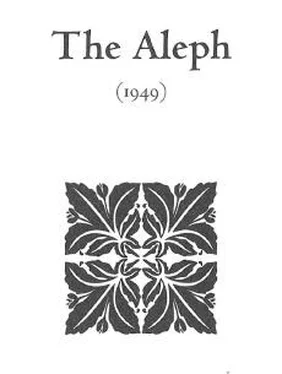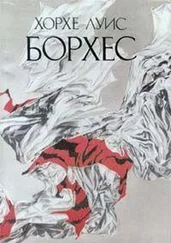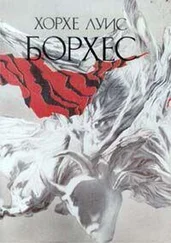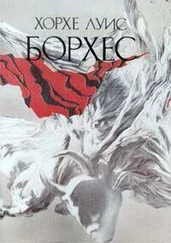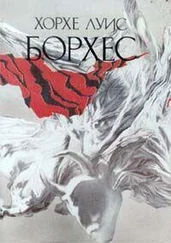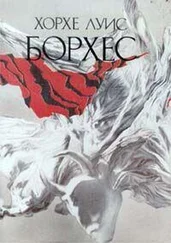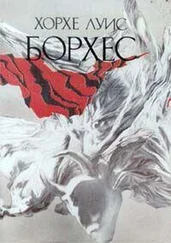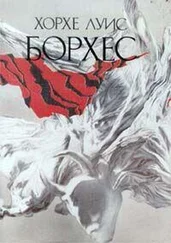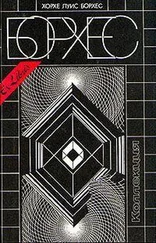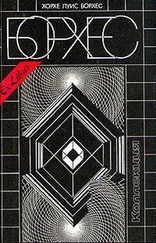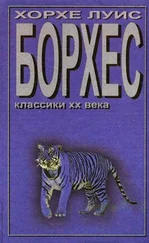Хорхе Борхес - Collected Fictions
Здесь есть возможность читать онлайн «Хорхе Борхес - Collected Fictions» весь текст электронной книги совершенно бесплатно (целиком полную версию без сокращений). В некоторых случаях можно слушать аудио, скачать через торрент в формате fb2 и присутствует краткое содержание. Год выпуска: 1999, ISBN: 1999, Издательство: Penguin (UK), Жанр: Старинная литература, на английском языке. Описание произведения, (предисловие) а так же отзывы посетителей доступны на портале библиотеки ЛибКат.
- Название:Collected Fictions
- Автор:
- Издательство:Penguin (UK)
- Жанр:
- Год:1999
- ISBN:9780140286809
- Рейтинг книги:5 / 5. Голосов: 1
-
Избранное:Добавить в избранное
- Отзывы:
-
Ваша оценка:
- 100
- 1
- 2
- 3
- 4
- 5
Collected Fictions: краткое содержание, описание и аннотация
Предлагаем к чтению аннотацию, описание, краткое содержание или предисловие (зависит от того, что написал сам автор книги «Collected Fictions»). Если вы не нашли необходимую информацию о книге — напишите в комментариях, мы постараемся отыскать её.
Collected Fictions — читать онлайн бесплатно полную книгу (весь текст) целиком
Ниже представлен текст книги, разбитый по страницам. Система сохранения места последней прочитанной страницы, позволяет с удобством читать онлайн бесплатно книгу «Collected Fictions», без необходимости каждый раз заново искать на чём Вы остановились. Поставьте закладку, и сможете в любой момент перейти на страницу, на которой закончили чтение.
Интервал:
Закладка:
I told him it was nothing. (It was the habit of civil war that impelled me to act as I acted; besides, the imprisonment of a single one of us could imperil the entire cause.)
The next day, Moon had recovered his composure. He accepted a cigarette and subjected me to a harsh interrogation as to the "financial resources of our revolutionary party." His questions were quite lucid; I told him (truthfully) that the situation was grave. Deep rumblings of gunfire troubled the peace of the south. I told Moon that our comrades were waiting for us. My overcoat and revolver were up in my room; when I returned, I found Moon lying on the sofa, his eyes closed. He thought he had a fever; he pleaded a painful spasm in his shoulder.
It was then that I realized he was a hopeless coward. I clumsily told him to take care of himself, then left. I was embarrassed by the man and his fear, shamed by him, as though I myself were the coward, not Vincent Moon. Whatsoever one man does, it is as though all men did it. That is why it is not unfair that a single act of disobedience in a garden should contaminate all humanity; that is why it is not unfair that a single Jew's crucifixion should be enough to save it. Schopenhauer may have been right—I am other men, any man is all men, Shakespeare is somehow the wretched John Vincent Moon.
We spent nine days in the general's great house. Of the agonies and the rays of light of that dark war I shall say nothing; my purpose is to tell the story of this scar that affronts me. In my memory, those nine days form a single day—except for the next to last, when our men stormed a barracks and avenged, life for life, our sixteen comrades fallen to the machine guns at Elphin. I would slip out of the house about dawn, in the blurred confusion of first light. I would be back toward nightfall. My comrade would be waiting for me upstairs; his wound would not allow him to come down. When I look back, I see him with some book of strategy in his hand—F. N. Maude, or Clausewitz. "The weapon of preference for me," he confessed to me one night, "is artillery." He enquired into our plans; he enjoyed criticizing or rethinking them. He was also much given to deploring "our woeful financial base"; dogmatically and sombrely he would prophesy the disastrous end. "C'est une affaire flambée," he would mutter. To show that his physical cowardice was a matter of indifference to him, he made a great display of mental arrogance. Thus passed, well or not so well, nine days.
On the tenth, the city fell once and forever into the hands of the Black and Tans. High-sitting, silent horsemen patrolled their beats; there was ash and smoke in the wind. I saw a dead body sprawled on one corner—yet that dead body is less vivid in my memory than the dummy that the soldiers endlessly practised their marksmanship on in the middle of the city square.... I had gone out when dawn was just streaking the sky; before noon, I was back. Moon was in the library, talking to someone; I realized from the tone of his voice that he was speaking on the telephone. Then I heard my name; then, that I'd be back at seven, and then, that I'd be arrested as I came across the lawn. My rational friend was rationally selling me out. I heard him demand certain guarantees of his own safety.
Here my story becomes confused and peters out a bit. I know that I chased the snitch through black corridors of nightmare and steep stairwells of vertigo. Moon knew the house well, every bit as well as I. Once or twice I lost him, but I managed to corner him before the soldiers arrested me. From one of the general's suits of armor, I seized a scimitar, and with that steel crescent left a flourish on his face forever—a half-moon of blood. To you alone, Borges—you who are a stranger—I have made this confession. Your contempt is perhaps not so painful.
· · ·
Here the narrator halted. I saw that his hands were trembling.
"And Moon?" I asked. "What became of Moon?"
"He was paid his Judas silver and he ran off to Brazil. That evening, in the city square, I saw a dummy shot by a firing squad of drunks."
I waited vainly for the rest of the story. Finally, I asked him to go on.
A groan made his entire body shiver; he gestured, feebly, gently, toward the curving whitish scar.
"Do you not believe me?" he stammered. "Do you not see set upon my face the mark of my iniquity? I have told you the story this way so that you would hear it out. It was I who betrayed the man who saved me and gave me shelter—it is /who am Vincent Moon. Now, despise me."
1942
The Theme of the Traitor and the Hero
So the Platonic Year
Whirls out new right and wrong
Whirls in the old instead;
All men are dancers and their tread
Goes to the barbarous clangour of a gong.
W. B. Yeats, The Tower
Under the notorious influence of Chesterton (inventor and embellisher of elegant mysteries) and the court counselor Leibniz (who invented preestablished harmony), in my spare evenings I have conceived this plot—which I will perhaps commit to paper but which already somehow justifies me. It needs details, rectifications, tinkering—there are areas of the story that have never been revealed to me. Today, January 3,1944,1 see it in the following way:
The action takes place in an oppressed yet stubborn country—Poland, Ireland, the republic of Venice, some South American or Balkan state.... Or took place rather, for though the narrator is contemporary, the story told by him occurred in the mid or early nineteenth century—in 1824, let us say, for convenience's sake; in Ireland, let us also say. The narrator is a man named Ryan, the great-grandson of the young, heroic, beautiful, murdered Fergus Kilpatrick, whose grave was mysteriously violated, whose name gives luster to Browning's and Hugo's verses, and whose statue stands high upon a gray hilltop among red bogs.
Kilpatrick was a conspirator and a secret and glorious captain of conspirators. Like Moses, who from the land of Moab glimpsed yet could not reach the promised land, Kilpatrick perished on the eve of the victorious rebellion he had planned for and dreamed of. The date of the first centenary of his death is approaching; the circumstances of the crime are enigmatic; Ryan, who is writing a biography of the hero, discovers that the enigma goes deeper than mere detective work can fathom. Kilpatrick was murdered in a theater; the English police never apprehended the assassin. Historians claim that this failure does not tarnish the good name of the police, since it is possible that the police themselves had Kilpatrick murdered. Other aspects of the mystery disturb Ryan; certain things seem almost cyclical, seem to repeat or combine events from distant places, distant ages. For example: Everyone knows that the constables who examined the hero's body found a sealed letter warning Kilpatrick not to go to the theater that night; Julius Caesar, too, as he was walking toward the place where the knives of his friends awaited him, received a note he never read—a note telling him of his betrayal and revealing the names of his betrayers. Caesar's wife, Calpurnia, saw in dreams a tower felled by order of the Senate; on the eve of Kilpatrick's death, false and anonymous rumors of the burning of the circular tower of Kilgarvan spread throughout the country—an event that might be taken as an omen, since Kilpatrick had been born in Kilgarvan. These (and other) parallels between the story of Julius Caesar and the story of an Irish conspirator induce Ryan to imagine some secret shape of time, a pattern of repeating lines. His thoughts turn to the decimal history conceived by Condorcet, the morphologies proposed by Hegel, Spengler, and Vico, mankind as posited by Hesiod, degenerating from gold to iron. He thinks of the transmigration of souls, a doctrine that lends horror to Celtic literature and that Caesar himself attributed to the Druids of Britain; he toys with the idea that before Fergus Kilpatrick was Fergus Kilpatrick, he was Julius Caesar. He is saved from those circular labyrinths by a curious discovery, a discovery which, however, will plunge him deep into other, yet more tangled and heterogeneous mazes: It seems that certain words spoken by a beggar who spoke with Fergus Kilpatrick on the day of his death had been prefigured by Shakespeare, in Macbeth. The idea that history might have copied history is mind-boggling enough; that history should copy literature is inconceivable-----Ryan digs further, and he finds that in 1814 James Alexander Nolan, the oldest of the hero's comrades, had translated Shakespeare's major plays into Gaelic—among them Julius Caesar. He also finds in the archives a manuscript article by Nolan on the Swiss Festspiele —vast peripatetic theatrical performances that require thousands of actors and retell historical episodes in the same cities, the same mountains in which they occurred. Another unpublished document reveals to Ryan that a few days before the end, Kilpatrick, presiding over the last gathering of his chiefs, had signed the death sentence of a traitor, whose name has been scratched out.
Читать дальшеИнтервал:
Закладка:
Похожие книги на «Collected Fictions»
Представляем Вашему вниманию похожие книги на «Collected Fictions» списком для выбора. Мы отобрали схожую по названию и смыслу литературу в надежде предоставить читателям больше вариантов отыскать новые, интересные, ещё непрочитанные произведения.
Обсуждение, отзывы о книге «Collected Fictions» и просто собственные мнения читателей. Оставьте ваши комментарии, напишите, что Вы думаете о произведении, его смысле или главных героях. Укажите что конкретно понравилось, а что нет, и почему Вы так считаете.
